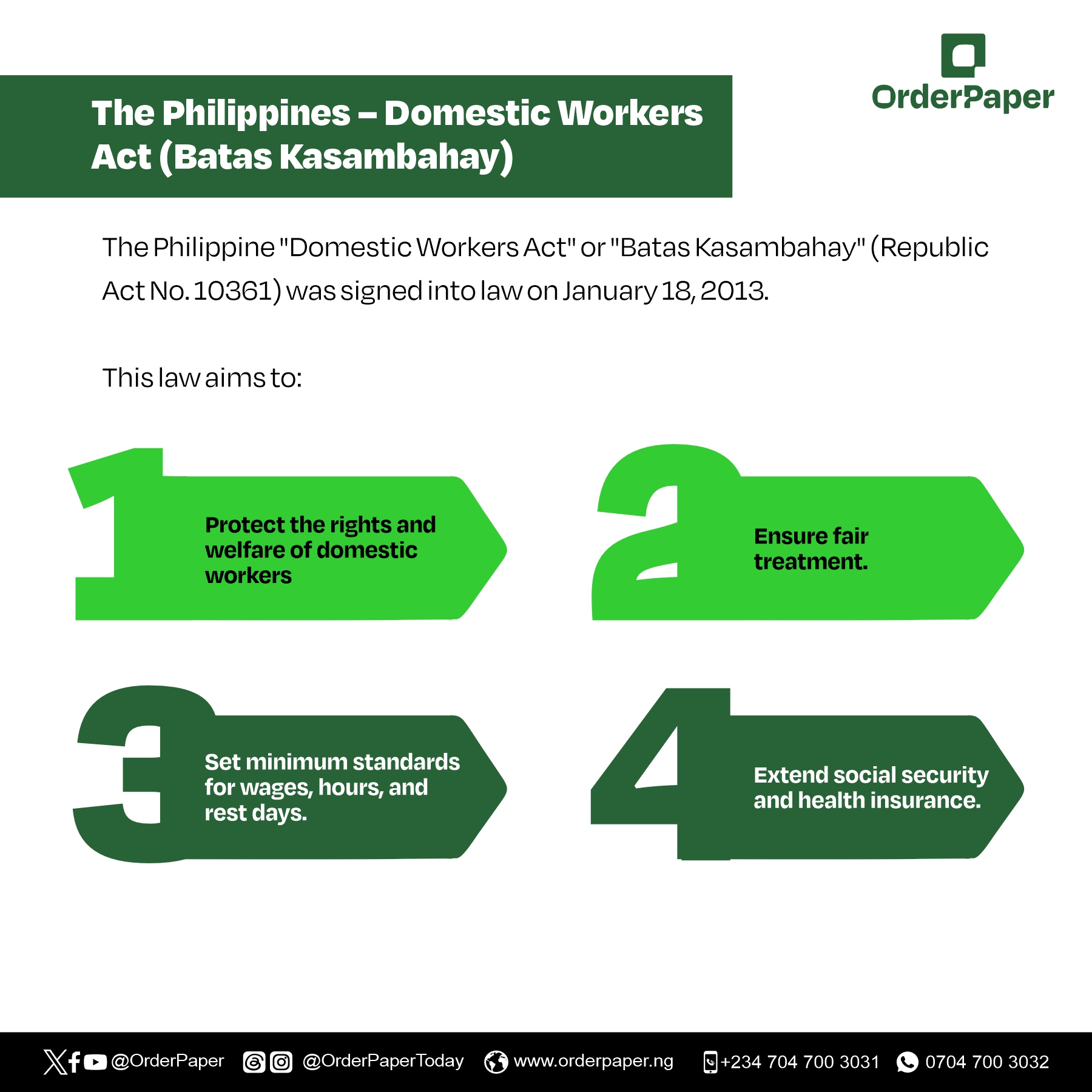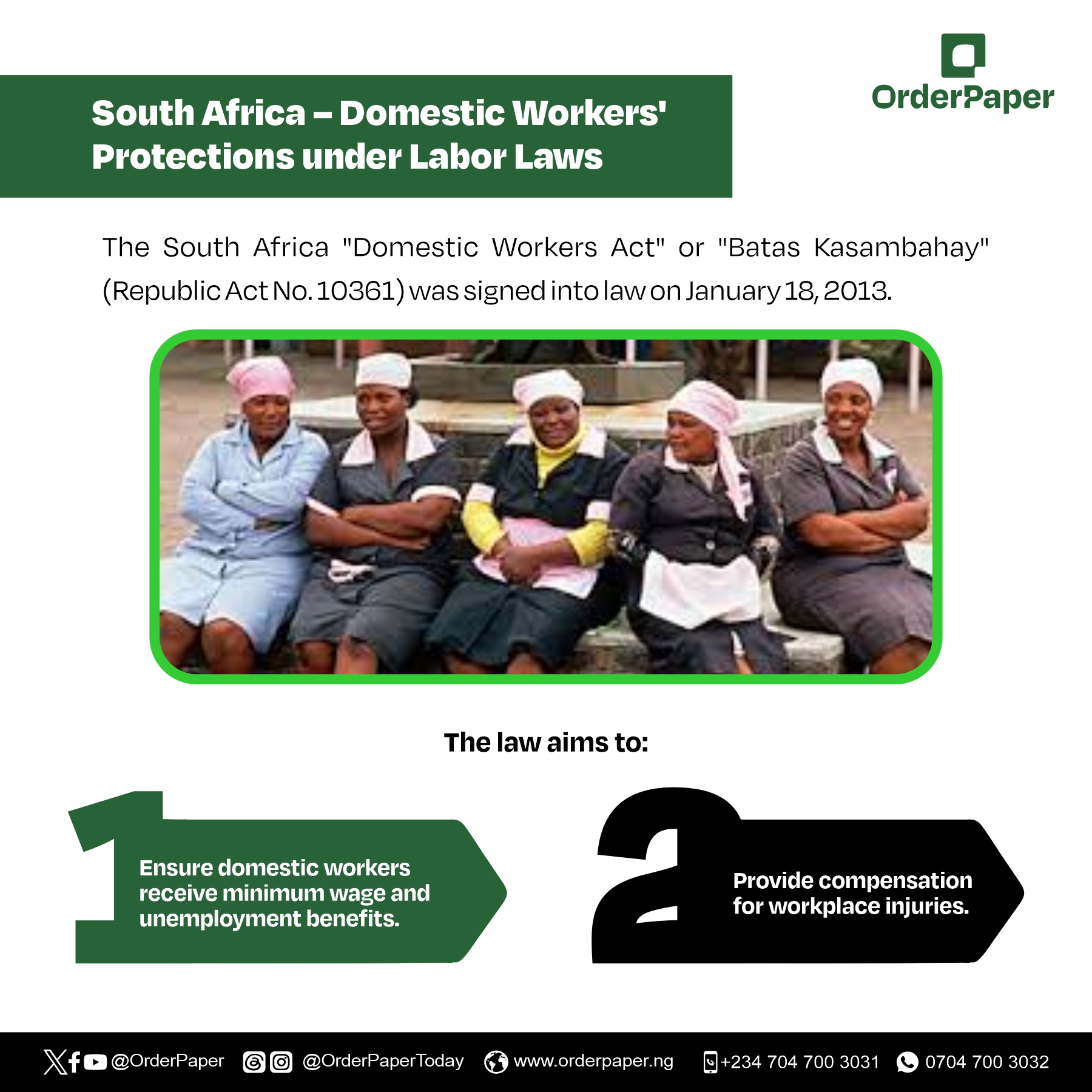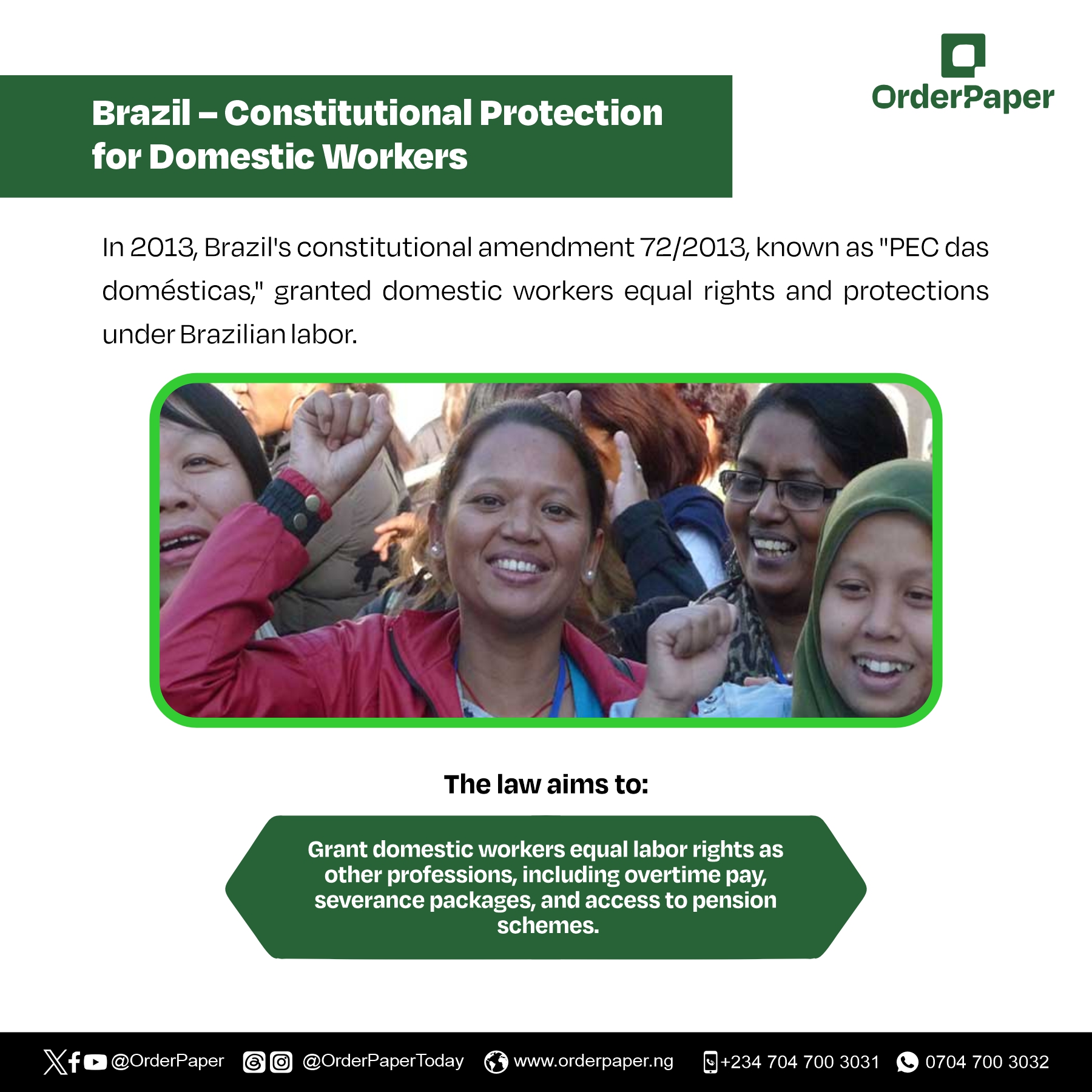Domestic workers play an essential role in households across Nigeria, yet they remain one of the most vulnerable groups in the labor force. From a Gender Equality and Social Inclusion (GESI) perspective, it is crucial to address the systemic barriers they face, including poor working conditions, lack of legal protection, and discrimination, to ensure their rights and dignity are upheld.
![]()
A bill for an Act to establish minimum employment standards, ensure the protection and welfare of domestic workers, and for related matters sponsored by Rep Akin Alabi (Oyo, APC) is a critical step toward ensuring their dignity, fair treatment, and protection under the law.
This bill seeks to align the welfare and rights of domestic workers with global best practices and reinforce Nigeria’s commitment to Gender Equality and Social Inclusion (GESI).

The Plight of Domestic Workers in Nigeria
Domestic work is largely informal and unregulated, making workers—particularly women and young girls—susceptible to exploitation, underpayment, and abuse. Many face long working hours, low wages, lack of job security, and physical or emotional mistreatment.
Due to the absence of clear legal frameworks, domestic workers often lack access to social protections such as health insurance, pensions, or legal recourse for workplace abuses.
Nigeria signed the International Labour Organization (ILO) Convention 189 on Decent Work for Domestic Workers in 2011, committing to upholding labor standards for domestic workers. However, it has failed to domesticate the treaty.
READ ALSO: Maids & Maiguards: Reps Advances Bill on Rights of Domestic Workers
Domestic Workers: Lessons from other Countries
Nigeria is not alone in grappling with the challenges of protecting domestic workers. Several countries have already enacted strong legislation to safeguard their rights, providing valuable lessons for Africa’s most populous nation.
- The Philippines – Domestic Workers Act (Batas Kasambahay)
The Philippine “Domestic Workers Act” or “Batas Kasambahay” (Republic Act No. 10361) was signed into law on January 18, 2013, with the aim to protect the rights and welfare of domestic workers, ensuring fair treatment, setting minimum standards for wages, hours, and rest days, and extending social security and health insurance. This law has significantly improved the welfare of domestic workers, demonstrating how strong legislation can create a fair and just working environment.
- South Africa – Domestic Workers’ Protections under Labor Laws
South Africa has integrated domestic workers into its national labor laws -the Basic Conditions of Employment Act (BCEA) ensuring they receive minimum wage, unemployment benefits, and compensation for workplace injuries. The government also requires written contracts and limits working hours, making domestic employment more structured and regulated.
- Brazil – Constitutional Protection for Domestic Workers
In 2013, Brazil’s constitutional amendment 72/2013, known as “PEC das domésticas,” granted domestic workers equal rights and protections under Brazilian labor, where domestic workers had equal labor rights as other professions, including overtime pay, severance packages, and access to pension schemes. Before 2013, domestic workers in Brazil were excluded from many of the labor rights afforded to other workers. This reform significantly improved the working conditions and social protection of domestic workers in Brazil and significantly reduced labor exploitation.
How the Nigerian Domestic Workers Bill of Rights Can Advance GESI
- Gender Equity: Domestic work is predominantly carried out by women, often from economically disadvantaged backgrounds. Formalizing their labor rights can ensure they receive fair wages, legal protection, and access to benefits.
- Social Inclusion: Many domestic workers are migrants, young girls, or individuals from low-income households. This bill can ensure their protection from discrimination and exploitation.
- Economic Justice: By enforcing minimum wage laws and social protections, the bill can reduce poverty, empower workers financially, and contribute to economic growth.
- Prevention of Abuse: Many domestic workers experience physical and emotional abuse without legal recourse. A clear legal framework would establish mechanisms for reporting and addressing labor violations thereby preventing abuse.
A Step Towards Justice and Equity
The Domestic Workers Bill of Rights is a historic opportunity to advance labor justice and GESI in Nigeria. By drawing from international best practices and prioritizing the rights and welfare of domestic workers, Nigeria can create a more equitable society where all workers, regardless of their occupation, are treated with dignity and respect.
Now is the time for lawmakers, civil society organizations, and the public to rally behind this bill which has passed second reading in the House of Representatives.




